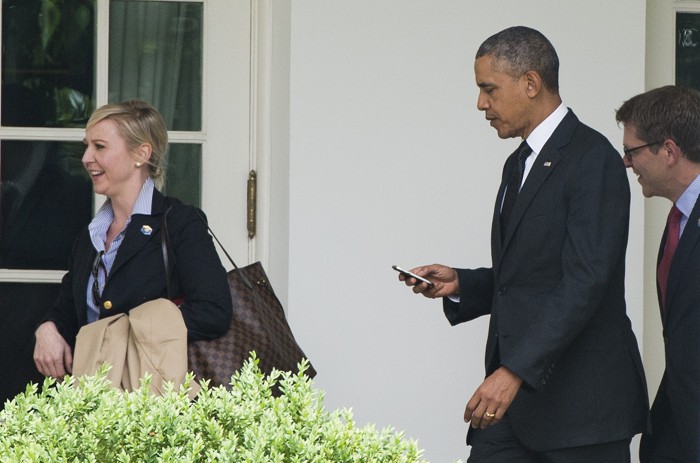The Spies Who Loved iPhones
Technology has made the lives of most people more efficient. But it’s a double-edged sword for government spies.
As we know all too well, the National Security Agency has spent years perfecting ways to slurp up the data we generate as we go about our digital lives. Public desire to be ever-more connected plays right into the hands of the agency as it taps phones, exploits software vulnerabilities, and writes algorithms to scrape data that could incriminate would-be terrorists (or else intrude on the privacy of the innocent).
Spies’ intimate knowledge of the ways in which digital communications can be infiltrated has prevented them from adopting technology that most us take for granted—smartphones, tablets, even Wi-Fi. But not using such technology can slow down their jobs. “We’d be cutting off our noses to spite our faces by denying us those kinds of tools,” Matt Conner, deputy chief information security officer of the National Geospatial-Intelligence Agency, told Bloomberg in an interview.

But you can sense the longing in those words. The yearning. Matt, if we’re reading you correctly, we agree: a BlackBerry probably is starting to look a little bit outdated these days.
So the NGA, which supplies mapping and satellite imagery for other intelligence agencies, has been on a (secretive) shopping spree. Its Springfield, Virginia, headquarters has been decked out with a secure Wi-Fi network. Not that it was an easy sell: apparently some people were “skeptical that there’s value” in the expensive kit that was required to lock down the network.
It’s also starting to use cloud services from the likes of Amazon and Microsoft for both its encrypted and regular networks. And some team members even adopted iPhones instead of BlackBerrys last year. Not that that they’re allowed to use them in the agency offices. They’re not that relaxed about it.
Still, with such wantonly frivolous adoption of exotic technology comes problems that need to be fixed. If spies are going to go around using laptops with webcams built into them, for instance, then they damn well better stick tape over the lens. FBI director James Comey has admitted that he does as much.
And sadly for Barack Obama, the tech-modifying tentacles reach into the White House, too. His iPad was modified by DARPA before he was allowed to touch it—presumably to relieve it of features like a camera, GPS, Bluetooth, and anything else, you know, useful. (He wasn’t allowed an iPhone.)
These, then, are the prices that our spies and chief government officials must pay to get a taste of technology, while also ensuring that the U.S. remains safe. Still, anything to wriggle out of using a BlackBerry.
(Read more: Bloomberg, The Hill, “The Trials of Barack Obama, Gadget Hound”)
Keep Reading
Most Popular
Large language models can do jaw-dropping things. But nobody knows exactly why.
And that's a problem. Figuring it out is one of the biggest scientific puzzles of our time and a crucial step towards controlling more powerful future models.
The problem with plug-in hybrids? Their drivers.
Plug-in hybrids are often sold as a transition to EVs, but new data from Europe shows we’re still underestimating the emissions they produce.
Google DeepMind’s new generative model makes Super Mario–like games from scratch
Genie learns how to control games by watching hours and hours of video. It could help train next-gen robots too.
How scientists traced a mysterious covid case back to six toilets
When wastewater surveillance turns into a hunt for a single infected individual, the ethics get tricky.
Stay connected
Get the latest updates from
MIT Technology Review
Discover special offers, top stories, upcoming events, and more.